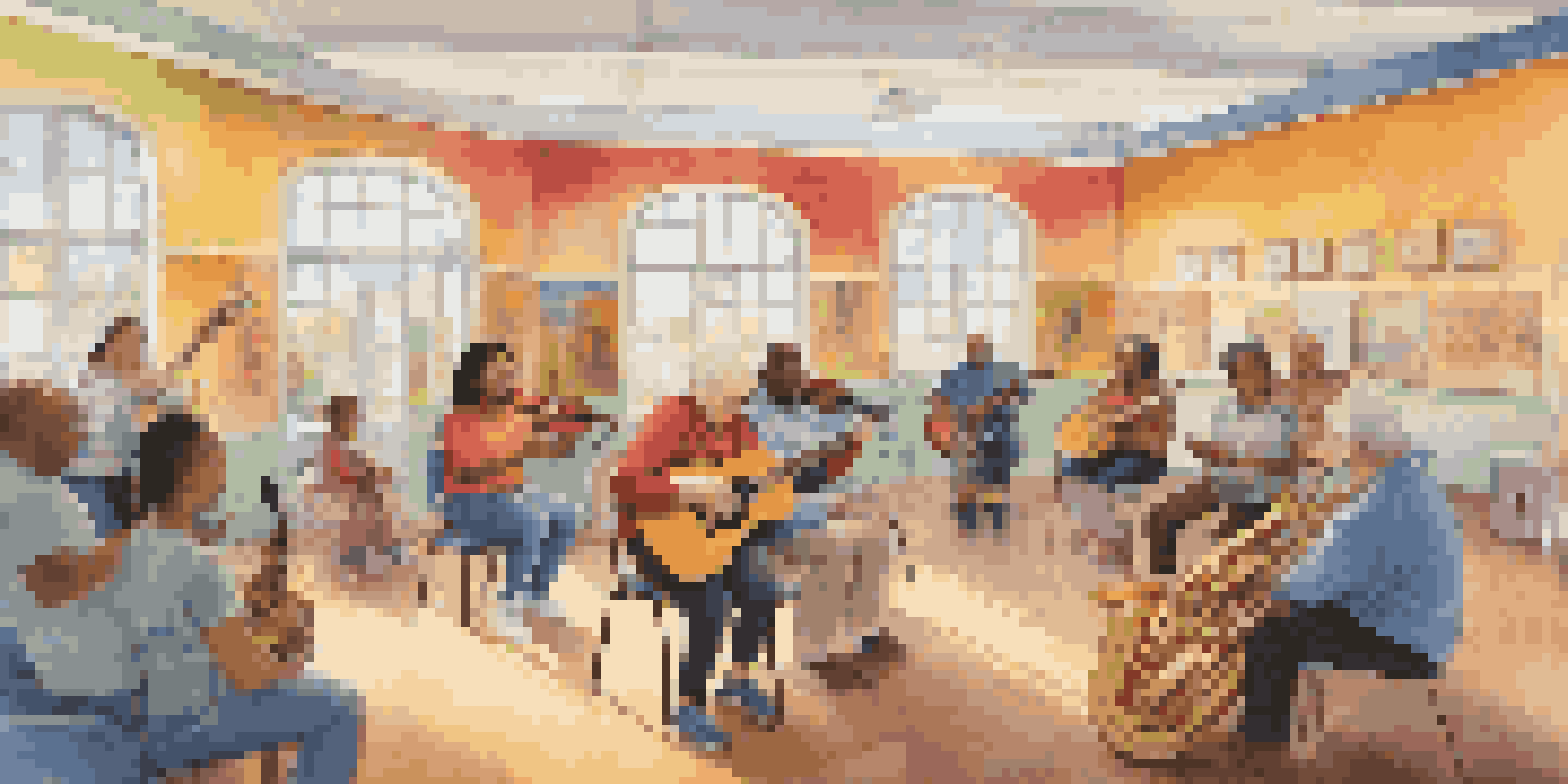Using Music to Foster Resilience in Displaced Populations

Understanding Displacement and Its Challenges
Displacement can occur due to various factors like war, natural disasters, or persecution, leaving individuals and families uprooted. This upheaval can lead to immense psychological stress, loss of identity, and a sense of hopelessness. Understanding the challenges displaced populations face is crucial for developing effective support systems that foster resilience and recovery.
The Power of Music as a Healing Tool
Music has been a universal language throughout history, transcending barriers and connecting people. Research shows that music can reduce anxiety, improve mood, and even enhance cognitive functions. Its familiar rhythms and melodies can evoke memories, providing a comforting sense of normalcy and continuity for those who have lost so much.
Music as a Healing Tool
Music can significantly reduce anxiety and improve mood, making it a powerful resource for those who have experienced displacement.
Creating Safe Spaces Through Musical Expression
Community centers and shelters often serve as temporary havens for displaced individuals. Incorporating music programs into these spaces can create an environment where people feel safe to express their emotions. Through singing, playing instruments, or even songwriting, participants can share their experiences, fostering connection and understanding among diverse groups.
Building Community Bonds with Group Music Activities
Group music activities, such as drumming circles or choir sessions, can strengthen community ties. When people collaborate on music, they create a shared experience that can diminish feelings of isolation. These collective activities also promote teamwork and communication, essential elements in rebuilding trust among displaced individuals.
Community Through Musical Expression
Group music activities foster connection and trust among displaced individuals, helping to rebuild community ties.
Music Therapy: A Professional Approach to Healing
Music therapy is a structured approach that uses music to address emotional, cognitive, and social needs. Certified music therapists can work with displaced populations to offer personalized support, using tailored musical interventions. This professional guidance ensures that the healing process is both effective and sensitive to the unique experiences of individuals.
Incorporating Local Musical Traditions
Engaging with local musical traditions not only preserves cultural heritage but also enriches the therapeutic process. When displaced individuals participate in familiar songs or dances, it can evoke a sense of pride and belonging. This connection to their roots is essential for fostering resilience and a sense of identity in the face of adversity.
Cultural Roots Enhance Resilience
Incorporating local musical traditions helps displaced individuals reconnect with their heritage, promoting a sense of identity and belonging.
Success Stories: Music in Action
Several organizations around the world have successfully utilized music to support displaced populations. From refugee camps in Greece to community centers in Lebanon, music programs have brought hope and healing to many. These success stories highlight the transformative power of music and its ability to foster resilience in the most challenging circumstances.
The Future of Music and Resilience Initiatives
As we look to the future, integrating music into resilience-building initiatives will become increasingly important. Policymakers, humanitarian organizations, and community leaders must recognize music's potential as a therapeutic tool. By investing in music programs, we can empower displaced populations to rebuild their lives and foster a sense of hope for a brighter future.